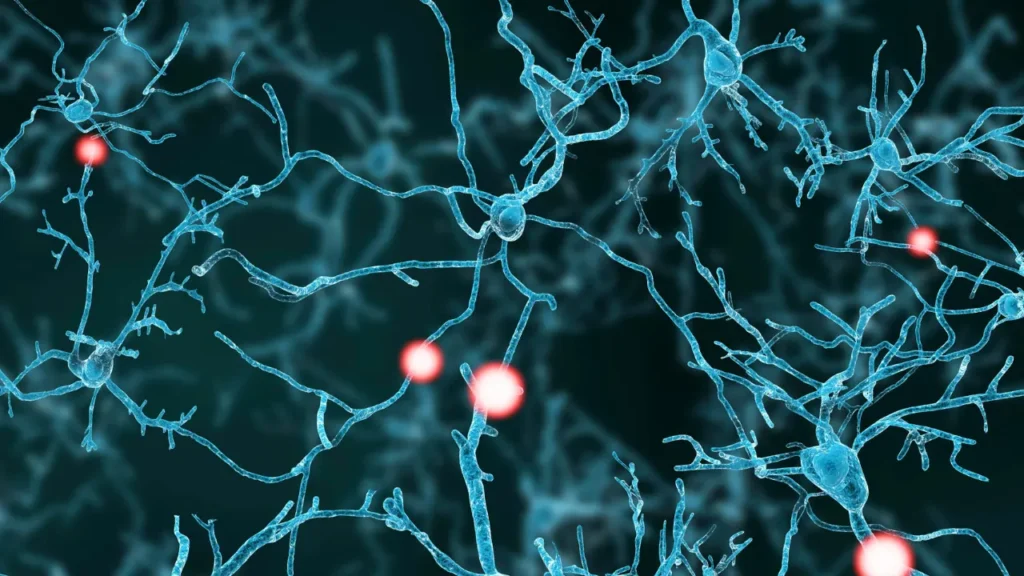A naturally occurring substance called schizandrol-A is obtained from the fruit-bearing plant Schisandra chinensis, native to China, Korea, and Russia. Due to its many health advantages, including improving cognitive function, it has been employed in traditional Chinese medicine. It has become more well-known recently as a nootropic substance for enhancing alertness, focus, and cognition. This article will cover the nature of Schizandrol-A, its health advantages, ideal dosage, adverse effects, potential drug interactions, and safe use.
You May Also Like:
Keep Your Brain Young With the 5 Most Powerful Nootropic Supplements
ONNIT Supplements Antarctic Krill Oil Reviewed: A Leading Memory Support Supplement
Schizandrol-A: Benefits, Dosage, Side Effects, Drug Interactions, And Other Important Information is an original (NootropicsPlanet) article.
Nature of Schizandrol-A
Schisandra chinensis seeds contain a lignan substance called schizandrol-A. Lignans are organic substances with anti-inflammatory and antioxidant effects. Schizandrol-A has a molecular weight of 416.51 g/mol and the chemical formula C24H32O6. Its melting point is 173–174°C, a white, crystalline powder with a bitter flavor.
Health Benefits of Schizandrol-A
Schizandrol-A’s antioxidant and anti-inflammatory capabilities confer a wide range of health advantages. It has been demonstrated to enhance cognitive performance, lessen stress and anxiety, and shield the liver from harm.
Enhancing the Mind
It has been discovered that schizandrol-A improves cognitive performance by raising dopamine levels in the brain. Dopamine is a neurotransmitter that is essential for cognition, motivation, and reward. According to studies, Schizandrol-A enhances cognition by raising dopamine levels in the prefrontal cortex, the area of the brain in charge of planning and executive function. Additionally, it has been discovered to enhance focus and memory.
Stress and Anxiety Reduction
By controlling the hypothalamic-pituitary-adrenal (HPA) axis, a mechanism that controls how the body reacts to stress, schizandrol-A has been shown to lessen anxiety and stress. According to studies, the stress hormones cortisol and adrenocorticotropic hormone (ACTH) are reduced by the drug schizandrol-A.
Schizandrol-A exhibits hepatoprotective properties, helping to protect the liver from damage and promote liver health. It may support liver detoxification processes, reduce inflammation, and improve liver function, potentially benefiting individuals with liver conditions or those exposed to liver toxins.

Chemistry of Schizandrol-A
A bioactive substance called schizandrol-A was discovered in the fruit of the East Asian native plant Schisandra chinensis. It is a lignan compound member of the polyphenol phytochemical class. Its unique chemical composition includes a cyclohexene ring and two phenyl rings. Schizandrol-A is a powerful antioxidant that may scavenge free radicals and shield cells from oxidative damage because of the hydroxyl groups that make up its chemical composition.
Schizandrol-A has a melting point between 81 and 83 °C and a molecular weight of 356.4 g/mol. It is water-insoluble but soluble in organic solvents like methanol, ethanol, and dimethyl sulfoxide (DMSO). Typically, techniques like supercritical fluid extraction, Soxhlet extraction, and microwave-assisted extraction are used to extract schizandrol-A from the fruit of Schisandra chinensis.
Schizandrol-A is a potential natural molecule for numerous health applications due to its distinctive chemical structure and powerful antioxidant qualities.
Physiological Mechanisms of Action
Several physiological pathways deliver Schizandrol-A’s benefits for the brain and body. Some of the main mechanisms of action are as follows:
- Altering Dopamine Levels: Schizandrol-A has been reported to raise dopamine levels in the prefrontal cortex, a part of the brain in charge of executive function and judgment. Dopamine is a neurotransmitter essential for cognition, motivation, and reward. Schizandrol-A enhances cognitive abilities such as memory, concentration, and problem-solving by raising dopamine levels.
- Control of the HPA Axis: The hypothalamic-pituitary-adrenal (HPA) axis controls how the body reacts to stress. In reaction to stress, schizandrol-A has been shown to lower the levels of stress hormones such as cortisol and adrenocorticotropic hormone (ACTH). Schizandrol-A lessens stress and anxiety while modulating the HPA axis enhances cognitive performance.
- Effects of Antioxidants and Anti-Inflammatories: Schizandrol-A provides potent antioxidant and anti-inflammatory actions. It neutralizes free radicals and lessens oxidative stress, two factors that can harm cells and advance several diseases. Additionally, it reduces inflammation, a significant factor in the emergence of many chronic diseases.
- Liver Protection: Schizandrol-A has been shown to shield the liver from harm caused by poisons like alcohol and narcotics. It accomplishes this by boosting the liver’s antioxidant enzymes’ ability to combat free radicals that harm liver cells.
In conclusion, Schizandrol-A is a lignan molecule that exerts its cognitive and health effects through various physiological pathways. It boosts dopamine levels, controls the HPA axis, has strong anti-inflammatory and antioxidant properties, and shields the liver from injury.

Optimal Dosage of Schizandrol-A
The ideal Schizandrol-A dosage has not been determined, and it may differ based on aspects including age, weight, and general health. However, research has revealed that 20 to 100 mg daily doses are safe and productive. To prevent any potential adverse effects, starting with a modest dose and gradually increasing it is advised.
Side Effects of Schizandrol-A
When taken as prescribed, schizandrol-A is typically safe. Some people, however, might encounter minor side effects such as dry mouth, nausea, and insomnia. Typically, these side effects are minor and go away on their own. Stop using and seek medical advice if you encounter any serious adverse effects.
Potential Substance Interactions with Schizandrol-A
Some prescription drugs and dietary supplements, such as blood thinners, antipsychotics, and antidepressants, may interact with schizandrol-A. Before taking Schizandrol-A, it is imperative to speak with a healthcare provider if you are already on any drugs or dietary supplements.

Best Responsible Uses of Schizandrol-A
A potent nootropic substance called schizandrol-A may offer a number of health advantages. To prevent any possible adverse effects, it is crucial to utilize them carefully. Here are some guidelines for using Schizandrol-A responsibly:
- If you have any pre-existing medical conditions or are on any drugs or dietary supplements, talk to a doctor before taking Schizandrol-A.
- Start with a modest dose and raise it gradually to prevent any possible adverse effects.
- Don’t take more Schizandrol-A than is advised.
- If you are trying to get pregnant or are nursing, avoid using Schizandrol-A.
- Only buy Schizandrol-A from trustworthy vendors to ensure quality and purity, and store it somewhere cold, dry, and out of the sun.
- If Schizandrol-A causes adverse side effects, stop using it and see a doctor.
Schizandrol-A:
Conclusion
Schizandrol-A represents a promising natural compound with potential applications in supporting stress management, cognitive function, liver health, antioxidant protection, and physical performance. Some studies suggest that Schizandrol-A may enhance physical performance and endurance by improving energy metabolism, increasing oxygen utilization, and reducing fatigue. It may benefit athletes and fitness enthusiasts seeking to optimize their performance and recovery.
While Schizandrol-A offers promising health benefits, more research is needed to fully understand its mechanisms of action, optimal dosages, and potential long-term effects. As with any dietary supplement, it’s essential to use Schizandrol-A under the guidance of a qualified healthcare professional, especially for individuals with specific health concerns or conditions. As scientific knowledge advances, Schizandrol-A may become a valuable tool for promoting overall health and vitality.

References:
- Schizandrol A: A Comprehensive Review of Its Pharmacological Properties. Evidence-Based Complementary and Alternative Medicine. https://www.hindawi.com/journals/ecam/2020/8897686/
- Potential of Schisandra chinensis (Turcz.) Baill. in Human Health and Nutrition: A Review of Current Knowledge and Therapeutic Perspectives
https://pmc.ncbi.nlm.nih.gov/articles/PMC6412213/ - Adaptogenic Herbs: List, Effectiveness, and Health Benefits. Healthline. https://www.healthline.com/health/adaptogenic-herbs
- A comprehensive review on Schisandrin and its pharmacological features. Link: https://pubmed.ncbi.nlm.nih.gov/37658213/
- Potential of Schisandra chinensis (Turcz.) Baill. in Human Health and Nutrition: A Review of Current Knowledge and Therapeutic Perspectives. Link: https://www.ncbi.nlm.nih.gov/pmc/articles/PMC6412213/
- Exploring the protective effects of schizandrol A in acute myocardial ischemia mice by comprehensive metabolomics profiling integrated with molecular mechanism studies. Link: https://pubmed.ncbi.nlm.nih.gov/32123298/
Important Note: The information contained in this article is for general informational purposes only, and should not be construed as health or medical advice, nor is it intended to diagnose, prevent, treat, or cure any disease or health condition. Before embarking on any diet, fitness regimen, or program of nutritional supplementation, it is advisable to consult your healthcare professional in order to determine its safety and probable efficacy in terms of your individual state of health.
Regarding Nutritional Supplements Or Other Non-Prescription Health Products: If any nutritional supplements or other non-prescription health products are mentioned in the foregoing article, any claims or statements made about them have not been evaluated by the U.S. Food and Drug Administration, and such nutritional supplements or other health products are not intended to diagnose, treat, cure, or prevent any disease.


